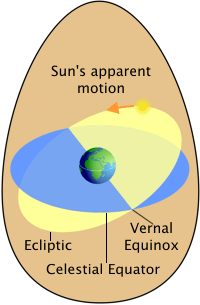The Difference between Five Metric Minutes and Five English Minutes
Created | Updated Jul 25, 2010

Editor's Note: Okay, we are well aware that it's summer, it's hot, and the three brain cells we still have working are needed to enable us to find the beer in the fridge. (If you aren't keeping your beer in the fridge, you are nuts. It's 40 ° out there.)
Nonetheless, we believe you should exercise your brains once a day. This elegant instructional piece will help you do it.
So start reading, and start thinking. It only hurts a little. No pain, no gain.
Although they may seem and feel different, in fact Five Metric Minutes are exactly equal to Five English Minutes.
To explain the reason why they feel different, you will need to take into account the different latitudes and varying Earth diameters between Northern and Southern Europe.
This difference in diameter means that: "AT REST" Southern Europeans are moving much faster than "AT REST" Northern Europeans.
This faster "stationary speed" of Southern Europeans means that in a 24-hour period they have covered a lot more distance than their Northern counterparts.
To compensate for this difference in performance and avoid unfair competition, their everyday physical movements and conception of time have had to decrease.
There is a mathematical formula based on Earth diameter, Latitude and country trait which you can use to calculate the differences and hence their "Latitudinal Time Phase Shift"
In practice, what this means is that on average a Northern European visiting southern Europe requires at least four weeks for their "Latitudinal Time Phase Shift" to adjust.
Hence, on arrival, their physical movements and conception of time are much too fast for their geographical position. This leads to them moving around at the wrong latitudinal speeds, and hence leaving their "at rest" position prematurely and arriving at appointments much too early.
Note: If the question is referring to five American English Minutes rather than five English Minutes, then the Latitudinal Time Phase Shift calculations are slightly different, you will need to add their "longitudinal cerebral shift factor".
So, see you in five minutes, and don't be early.
My current Stationary speed = 745 mph = 17880 miles per day.
London Stationary Speed: at latitude 51° North = 652 mph = 15648 miles per day.
Therefore, I travel 2232 extra miles a day compared to someone in London.
This means that I reach 15,648 miles three hours before someone would in London.
Therefore my "Latitudinal Time Phase Shift" compared to London means that I need to slow down by 8 minutes an hour.
For those of you interested, here are a few "AT REST" speeds.
PS: If you are not on the list, then multiply the value at the Equator by the cosine of your latitude to see how fast the Earth is rotating where you are.
- North Pole 90°N 0 mph
- Helsinki 60°N 519 mph
- Edinburgh, 55°N 595 mph
- London 51°N 652 mph
- Paris 48°N 694 mph
- Rome 41°N 783 mph
- Madrid 40°N 795 mph
- Equator 0° 1,037.58 mph
Survey: What's your current:
- "At Rest" speed
- "Latitudinal Time Phase Shift" (compared to me)
